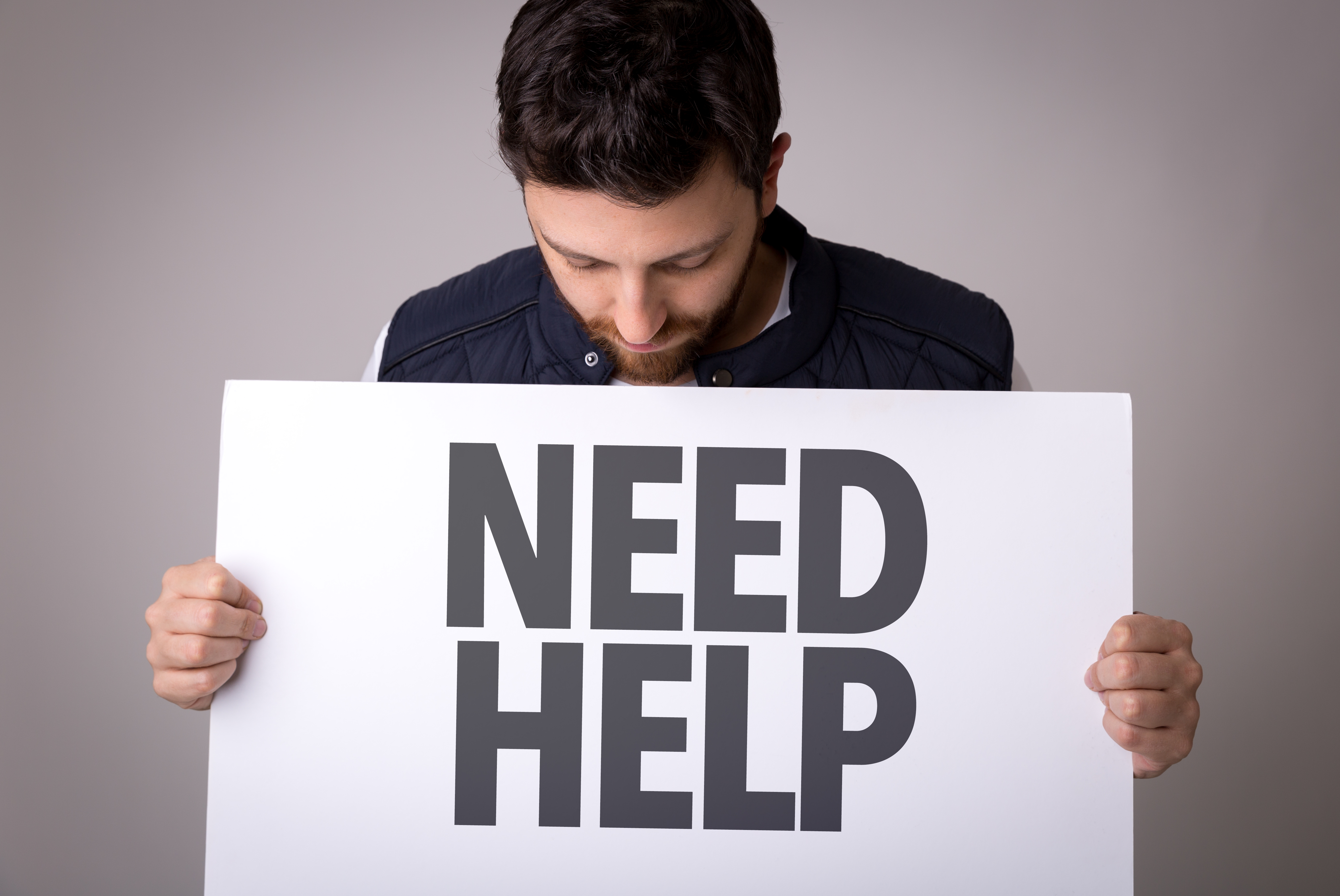Asking for Help Is an Important Skill
Sharon and I were in the car as she showed me around her town. As we discussed our lives and I brought her up to date on my life and the work I’ve been doing, she got raw with me. “I should probably see someone,” Sharon divulged, “but I don’t think I will. There are other people who have it worse than me, so it’s not a big deal.”
At group, Mary told us about her struggles with maintaining her home and yard. She has some family, most of whom aren’t in a good position to help. The group asked some questions about people she could reach out to – like our church – and she was clearly uncomfortable with asking. “I should be able to take care of this on my own,” she said.
These women are not unusual in their discomfort. Asking for help is one of the most challenging skills we develop on the road back to mental health.
There are several excuses we give ourselves to explain why we don’t ask for the help we need. None of them are accurate, though we believe they are. While there are too many to delve into for a post like this, there are three that come up most commonly in these conversations.
Common Excuses to Asking for Help
The first excuse we give ourselves is a true classic: “Others have it worse off than I do.” We saw this excuse used in Sharon’s story. Here’s what I counter with: Should we not tutor a kid getting a “D” in Math simply because others are getting “F”s? There are many psychiatrists, psychologists and other professionals around the world; one of us getting help does not mean that someone else won’t get help. Beyond that, who are we comparing ourselves to? If there is someone worse than us, then I can promise that there’s also someone who is better off than us. Either way, we are entitled to good quality of life, and getting help to manage our disorders is one part of achieving it.
The next excuse we give ourselves is practically our battle cry: “I should be able to handle this.” There are a lot of layers to this excuse, which I unpack in this post, so I won’t go into all the details here. The down-and-dirty point is that there are no “shoulds” when it comes to mental illness. Some days, we are able to handle more than we can on other days and that’s just the way it is.
Additionally, we often have a skewed sense of the severity of our situations. We know that people with mental illnesses have a much higher likelihood of living in extreme situations, including abuse, living with addicts, living with others who have a mental illness (regardless of diagnosis status), and more. It is easy to brush off our circumstances, when in reality they are extreme and few “healthy” people would be able to handle them, either. It’s OK to take off your superhero cape.
The last common excuse we tell ourselves is that we “don’t want to be a bother” or impose on anyone else. In reality, our friends and family often have told us, “Call me if you need anything.” Taking advantage of those offers is one way we demonstrate self-care and work our road back to mental health. When someone offers, they offer out of love and a good heart. If they genuinely can’t assist with our request, they have the power and capability to say “no,” and, in my experience, they will do so. It’s not an imposition. (For more on this topic, check out this post.)
The one common thread with all these messages is that we believe them wholeheartedly and yet they are all false. Learning to move past these excuses is a giant step on the road to recovery.
Learn to Recognize Your Needs
Before we even consider asking for help, we need to recognize the need. This is one area where I see people consistently judging themselves. In reality, often the help we really need isn’t a big deal. It might be watching the kids for one afternoon so we can sneak out for a movie or just hide at a bookstore for an hour. It might be bringing dinner over one night and helping relieve us of a burden. It might even be asking someone to come over and fold laundry with us for an hour. None of these are objectively a big deal, and most people in our support network are happy to help us with it.
Sometimes we do need to ask for bigger favors, such as a ride to and from work or acting as a caregiver for our children, and that’s fine, too. Those who love us are typically happy to help and if boundaries are needed (as in, “I can help you on Tuesdays and not on Wednesdays” or “I can help for the next two weeks, but won’t be able to after that”), most people are great at stating them.
So, how do we ask for help? Here are a few tips for make it easier for you:
First of all, define the real need. Is it that you need gas money for the next two weeks or that you need help creating a budget? Examining and understanding what help you really need will give you confidence when you make your request.
Next, figure out who you can go to for help. Start by making a list of people who have offered to help you in the past (including the “let me know if you need anything” friends and acquaintances). Is there anyone on the list who is best suited to help with what you really need? Or whose circumstances suggest that they may be in a better position to aid you? Make a list of people in the order you will call them.
The next step may be the hardest for you: make the call. Where possible, make your request in person. If you can’t, then a phone call is usually your next best bet. Also, when you make the call, keep your request simple; there’s no need (and no benefit) in going into detailed explanations. “Hi, Betty. I’m wondering if you can help me. My car isn’t working and I can’t afford to take it to the shop until next month. Is there any way you can help me by giving me rides?” Stay focused on the solution: maybe Betty can only help you on Mondays and Tuesdays, or can give you a ride to work but not home. Keep going through your list by asking people until you have the need met. If you need to, write out the script of how you will ask for help.
It is important at this point to remember to accept whatever answers you receive. If your parents say they can’t help you, there is no value in arguing with them or accusing them of anything. A simple “Thank you; I’ll try someone else” is the best response when we get a flat refusal – even when we feel like there are no other options. Remember, it’s OUR problem, not theirs, and we are the ones responsible for solving it.
Lastly, we sometimes get negative feedback from our support network when we ask for help. This is as unfortunate as it is true. We may hear “I told you so,” “Why is this an issue?” or even harsher language. When this happens, go back to the first point where you defined your real need and re-validate yourself. When we know what our real need is, it gets harder to argue with ourselves that we need (and deserve!) assistance.
Final Thoughts
Asking for help is not easy and often it comes loaded with a lot of self-judgment. Remembering that learning to ask for and receive assistance is a key self-care skill and helps us achieve resilience can make the process easier. Rather than judge ourselves for needing help, we can pat ourselves on the back for recognizing our needs and taking steps to meet them. It’s a small act with big rewards.
How do you ask for help? What tips would you share with others? I’d love to hear from you in the comments below!
Looking for daily inspiration and community? Join our warm and supportive Facebook group!








